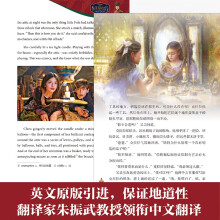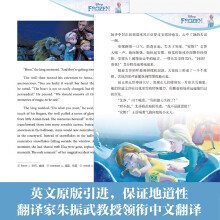《牛津英国文学史:现代运动/外国文学研究文库》:
While Shaw wasin sympathy with the emancipatory social agenda of the Edwardian problem-play tradition, he had long outgrown its dramatic limitations and its sometimes sentimental earnestness. The performance-within-a-performance of Fanny's Frrst Play recapitulates the familiar Ibsenist revolt of the younger generation against the elders, but this time as farcical travesty: the young middle-class protagonists Bobby and Margaret are engaged to be married, but each has a minor brush with the police and is briefly imprisoned, so bringing shame upon both respectable families; as the parents come round to conceding that such minor blemishes on their respectability are not the end of the world, the youngsters cause further disgrace by bringing home their new-found admirers, a prostitute and a married French lieutenant. Once Margaret has broken off the betrothal as a result of her new self-awareness, fresh engagements are formed between Bobby and the cheerful streetwalker Dora, and between Margaret and the family butler Juggins, who reveals that he is the brother of a duke. The realistic sobriety of the orthodox problem play is thrown to the winds here as Shaw represents emancipation from bourgeois respectability in the forms of comic surprise, excess, and release.
Shaw's preference was not for realistic representation of social problems but for the provocative and paradoxical discussion of ideas, interspersed with implausible comic interruptions and unmaskings. His special innovation was the 'discussion play', in which a negligible plot serves as an excuse for a medley of extravagant debates, quarrels, and confessions that turn received opinions on their heads. Shaw's MisaILiance, for example, which opened in February 1910 in the same theatre and as part of the same repertory season as Galsworthy's Justrce, illustrates the gulf between the disciplined seriousness of the problem play and the free-ranging levity of the Shavian discussion drama. Subtitled 'A Debate in One Sitting', Mrsallian.ce scarcely achieves the coherence even of a debate, but sustains itself as a loose sequence of dialogues on the mutual incomprehension of parents and children, occasionally enlivened by some farcical and theatrically daring interruptions, including the arrival ex machina of a female Polish acrobat in an aeroplane that crashes just offstage. 'Lets argue about something intellectual: one of the characters suggests almost as soon as the curtain rises, thus setting the tone (Mrsallrance, p.114). The action takes place in the conservatory of a country house belonging to John Tadeton, a wealthy underwear magnate famed as a practical businessman but actually so devoted to ideas that he supplements his speeches with recommendations for further reading, referring his guests and relatives to the works oflbsen, Browning, Whitman, Darwin, and other leaders of modern thought. The rebellious young heroine, Tarleton's daughter Hypatia, is impatient with the unending talk in her home, longing to become 'an active verb' (p. 145). She is engaged to be married to the obviously unsuitable weakling Bentley Summerhays, but a more promising catch is presented by the arrival of the aviator joseph Percival with his Polish passenger Lina Szczepanowska. Displaying the customary boldness of the Shavian heroine, Hypatia takes Percival by the hand and invites him to chase her through the heather, if only to give her family something new to talk about. Further farcical complications ensue as Tarleton propositions Lina the acrobat and is amiably rebuffed, while a young socialist clerk who has arrived to assassinate Tarleton in revenge for the seduction of his mother attempts to blackmail Percival and Hypatia, having witnessed their outdoor frolics. Hypatia's fiance Bentley is eventually hauled off by Lina, who has decided to make a man of him. There is a comic plot of sorts here, but it serves as little more than a peg on which to hang conversations about youth, age, marriage, democracy, and any other subject that may come up. Lina is a skilled juggler, but she is not permitted to practise her art on stage, where it is strictly ideas that are thrown in the air.
……
展开










